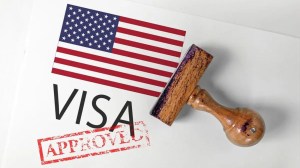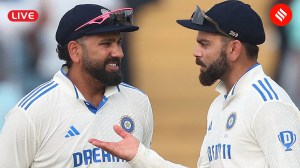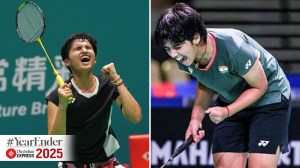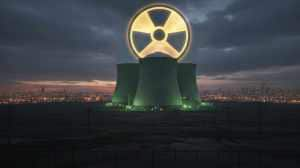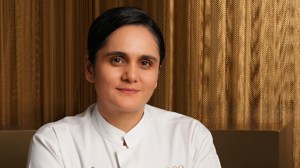Explained: FIFA’s U-turn and how Russia’s suspension impacts the Qatar World Cup
Amid the war in Ukraine, FIFA has suspended Russian teams from participating in all international events. UEFA has followed suit. What does this mean, and what happens next?
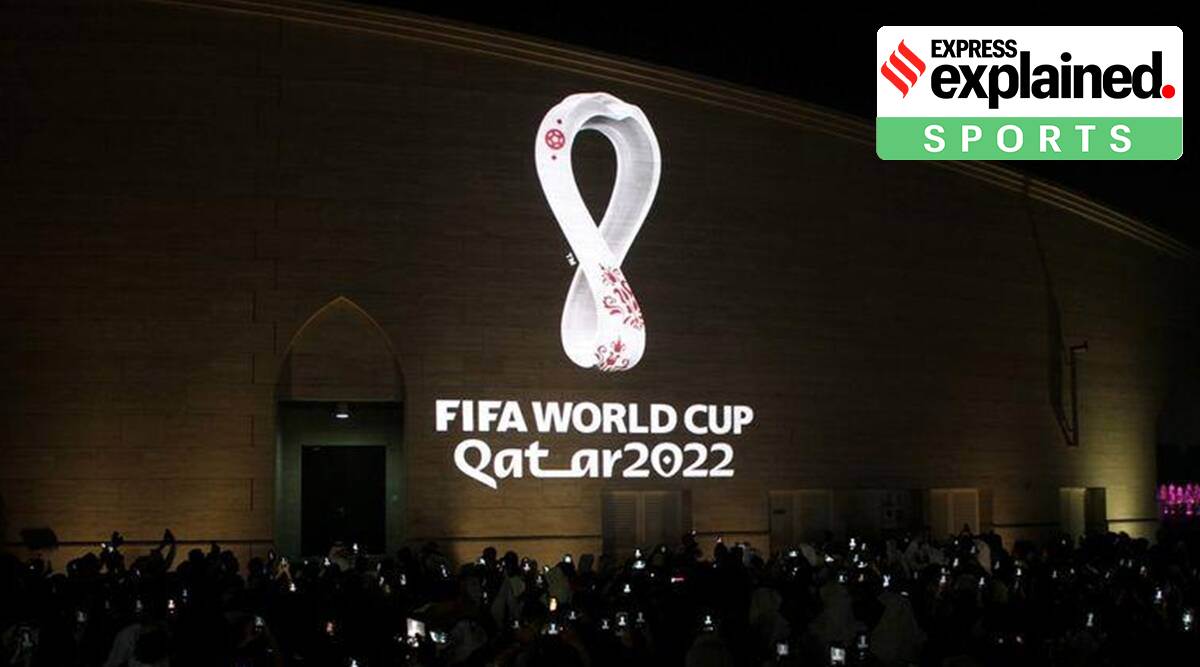
Making a U-turn, FIFA has suspended all Russian teams from participating in all international events, including the World Cup later this year. UEFA, the governing body of European football, has followed suit, banning Russian representation in club and international competitions. UEFA has severed ties with Russian state energy giants Gazprom, one of its main sponsors, as well.
The decision came hours after Fifa had allowed Russia to participate in the 2022 World Cup playoffs, or any competition for that matter, under the name Football Union of Russia (RFU).
What did the latest FIFA statement say?
In the wake of the Russian invasion of Ukraine, the country has been rapidly isolated from world sport. On Monday evening, a FIFA press release stated: “Following the initial decisions adopted by the FIFA Council and the UEFA Executive Committee, which envisaged the adoption of additional measures, FIFA and UEFA have today decided together that all Russian teams, whether national representative teams or club teams, shall be suspended from participation in both FIFA and UEFA competitions until further notice.”
What does it mean for the Russian football team?
This effectively expels them from the 2022 World Cup. Russia are due to play a World Cup playoff game against against Poland on March 24. But Poland had already refused to play against Russia. Now, it needs to be seen if Poland are given a bye to the playoff final.
Additionally, this also boots out Spartak Moscow, one of the most popular football clubs in Russia, from the UEFA’s Europa League.
What was the FIFA’s initial statement?
The statement issued by football’s governing body on Monday morning had said: “No international competition shall be played on the territory of Russia, with ‘home’ matches being played on neutral territory and without spectators”, adding: “The member association representing Russia shall participate in any competition under the name ‘Football Union of Russia (RFU)’ and not ‘Russia’.” FIFA has also banned the use of the Russian flag and anthem.
How did Russia’s opponents react to the initial FIFA statement?
Apparently, the statement had cut very little ice with Russia’s World Cup opponents. Following the statement, the Polish football association president Cezary Kulesza tweeted: “FIFA’s decision today is unacceptable to us. In the situation of war in Ukraine, we are not interested in the game of appearances. Our position remains unchanged: the national team Polish will not play against Russia in the play-off match, regardless of the name of the Russian team”.
The Polish FA, too, issued an official statement, saying: “…we do not see any possibility of competing with the Russian national team in playoff matches for promotion to the World Cup in Qatar in 2022 regardless of the name of the team consisting of Russian footballers and the place of the match.”
FIFA and UEFA suspend Russian clubs and national teams from all competitions.
Full statement: ⬇️
— UEFA (@UEFA) February 28, 2022
How many countries have taken a stand?
To show solidarity with Ukraine, Czech Republic, Poland and Sweden had already refused to play against Russia. On Sunday, the English FA released a statement, confirming its stand to boycott Russia. “Out of solidarity with Ukraine and to wholeheartedly condemn the atrocities being committed by the Russian leadership, The FA can confirm that we won’t play against Russia in any international fixtures for the foreseeable future. This includes any potential match at any level of senior, age group or para football.”
Scotland, too, have rejected Russia.
Could this have jeopardised the Qatar World Cup?
The World Cup is scheduled to be played from November 21, which is still about nine months away. But the series of rejections and the Fifa’s initial dithering could have led to a massive conundrum. Poland were due to play against Russia in a playoff semifinal on March 24 and the winners of that game go to the playoff final against either Czech Republic or Sweden. If the three countries pull out, Russia could be given a bye to the World Cup finals in Qatar. This might have opened a legal Pandora’s box.
FIFA and UEFA suspend Russian clubs and national teams from all competitions.
Full statement: ⬇️
— UEFA (@UEFA) February 28, 2022
What prompted a decision-change by FIFA?
With the game’s governing body facing global criticism for taking a half-and-half measure, it seemingly ran the risk of losing some of its biggest commercial partners, especially some of the American multinational giants.
What was UEFA’s earlier sanction?
The parent body of European football has relocated this season’s Champions League final from Saint Petersburg to Stade de France in Saint-Denis. A statement released on Friday said: “At today’s meeting, the UEFA Executive Committee also decided that Russian and Ukrainian clubs and national teams competing in UEFA competitions will be required to play their home matches at neutral venues until further notice.”
IOC Executive Board recommends no participation of Russian and Belarusian athletes and officialshttps://t.co/XZyLIi11XR
— IOC MEDIA (@iocmedia) February 28, 2022
How have sports bodies reacted to human rights issues?
A strong stand has been taken today by Fifa and Uefa. Also, the International Olympic Committee (IOC) Executive Board has recommended no participation of Russian and Belarusian athletes and officials.
By and large, though, sports bodies have allowed sportswashing. The IOC allowed 335 sportspersons from Russia to participate in the Tokyo Olympics, without using their country’s name, flag and anthem, and under the name the Russian Olympic Committee (ROC). This was despite the World Anti-Doping Agency (WADA) banning Russia for four years from competing in international events.
IOC Executive Board recommends no participation of Russian and Belarusian athletes and officialshttps://t.co/XZyLIi11XR
— IOC MEDIA (@iocmedia) February 28, 2022
The IOC president Thomas Bach turned up at the recent Beijing Winter Olympics, praising China even for staging the Games. Fifa awarded Qatar the 2022 World Cup without imposing labour rights conditions.
In England, the Premier League and the authorities allowed Newcastle United’s takeover by Saudi Arabia’s Public Investment Fund (PIF), a company chaired by the country’s Crown Prince Mohammed bin Salman. Last year, a United States intelligence report found that the Saudi Crown Prince approved the murder of exiled Saudi journalist Jamal Khashoggi in 2018.
On Saturday, Chelsea’s Russian owner Roman Abramovich announced via a club statement that he was giving “trustees of Chelsea’s charitable Foundation the stewardship and care of Chelsea FC”. According to a Telegraph (London) report, however, the Premier League has received “no formal application that would see Chelsea’s ownership materially changed”.
Newsletter | Click to get the day’s best explainers in your inbox
- 01
- 02
- 03
- 04
- 05















